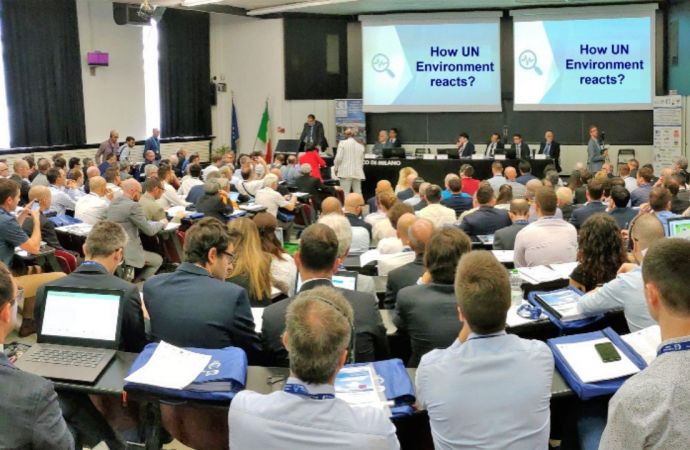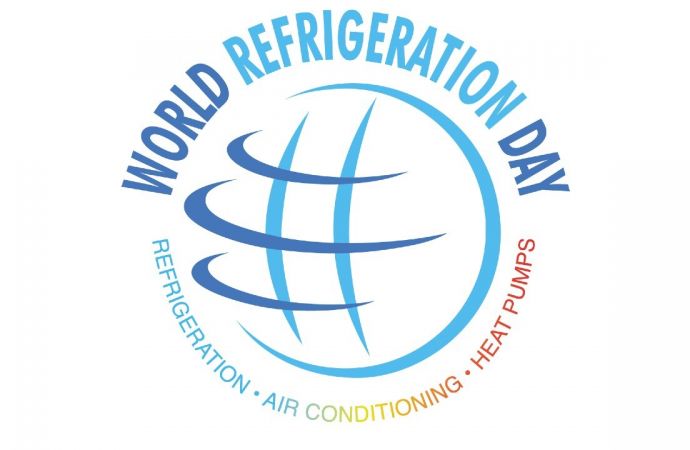Climate goals, COVID-19 and technician shortage are all driving further investments in advanced HVAC&R monitoring.

Digitalization of the refrigeration industry has been moving forward at warp speed for the last few years, a trend that is expected to continue unabated, as the Internet of Things (IoT), automation and artificial intelligence (AI) open up new avenues fordigital controls.
“We will without a doubt see an increased use of digitalized controls in 2021,” said Claus Schøn Poulsen, Center Manager at the Danish Technological Institute.
The energy savings enabled by advanced monitoring systems will be an important element of reaching 2030 climate goals, he noted. “This is where digitalized and intelligent controls will make a difference.”
Turner Anderson, Lead Sales Engineer at U.S. digitalization specialist Axiom Cloud, also expects 2021 to be a “banner year” for digitalization technology in the cooling industry. “Between rising energy costs, ongoing technician shortages, and aging compressor racks in many supermarkets and grocery stores across the country, there’s never been a better time to invest in digitalization,” he said.
Axiom Cloud uses digitization technology to autonomously reduce energy and maintenance costs of commercial refrigeration systems, thereby “allowing store owners to improve their bottom lines while spending more time on the activities that are most important to them,” Anderson explained.
“At Axiom Cloud,” he added, “our entire business model is built around the assumption that the cold chain, and particularly retail grocery, is ready to take advantage of digitalization, artificial intel- ligence, automation, and the Internet of Things to tackle their biggest energy and maintenance challenges.”
The COVID-19 pandemic might help drive the digitalization trend to new heights, given the increased opportunities for remote monitoring, and the reduced health risks for technicians, this offers. “We foresee many customers leveraging digitization in 2021 for the remote moni- toring benefits alone,” Anderson said, “but expect that they will be pleasantly surprised by the multitude of other benefits that are enabled by the proper infrastructure.”
Another factor driving increased uptake of digital tools in HVAC&R is the lack of qualified technicians, said Richard Wayne Gilles, Senior Product Leader for Distributed Solutions at U.S. OEM Hussmann.
“Maintenance activities will continue to change to more sophisticated tools and new diagnostic algorithms,” Gillies said. “This represents the necessary change to deal with a dwindling service personnel base.”
Detecting outliers
A retailer already experienced in employing digital controls is Belgium- based Colruyt Group, which has used them as standard in all new commercial installations for 10 years, and even longer in its industrial operations.
A new development for Colruyt is the introduction of an AI-based software solution to monitor the company’s propane chiller installations. “We now automatically detect outliers in terms of functioning, so we can send a technician and change any faulty components,” said Collin Bootsveld, Project Engineer at Colruyt Group. “Our cooling systems are modular so we can do this relatively easily.”
In 2021, Colruyt is planning to increase AI-based maintenance. The company’s goal is to halve its chemical refrigerant losses in the next two years, according to Bootsveld. This is supposed to happen through faster leak detection and a reduction in the filling level of the company’s remaining HFC cooling installations. The present level of refrigerant loss is 4%.
Other companies foreseeing increased levels of digital controls in 2021 include Evapco, a U.S.-based manufacturer of evaporators and condensers, which is planning to roll out its own remote energy monitoring program; and Belgian retail giant Delhaize, which intends to introduce a new cloud-based building management system that offers remote control as well.
German wholesale retailer Metro AG is also planning to optimize maintenance and energy demands as well as cut food waste with digitalized controls, according to Olaf Schulze, Director of Energy Management Investments & Technical Solutions at Metro.
It is not just within commercial refrigeration that digitalization is picking up speed. U.S-based Azane, which produces industrial ammonia (R717) chillers and freezers, is now equipping every system it delivers with parent company Star Refrigeration’s ETHOS Software package as standard.
The ETHOS software is more than just a data-collection and energy management tool, according to Caleb Nelson, Azane’s Vice President of Business Development. “It has been programmed uniquely to act as a 24/7/365 commissioning technician watching over the system,” he explained. “It gives you insights into the system performance based on the data it collects, and furthermore gives you recommendations for intervention based on the insights, and finally, it tells you how much money is being wasted for not intervening. This last point is often the most important as there needs to be a mechanism to drive action and justify the approval of maintenance dollars.”
Another industrial player, Canadian contractor Cimco Systems has developed its own digital product line called “Smart Controls” and plans to introduce “Smart Hub connecting all pieces of equipment together,” said Benoit Didier, Director of Business Development.
Related stories




